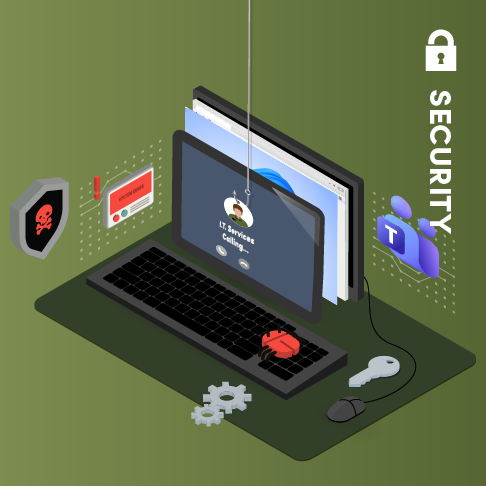There's a new Microsoft Teams vishing scam, and it's been taking businesses across the US by storm. Here's how it works, and how you can protect yourself.
Read MoreBuild an IT strategy that actually works by using these 5 simple steps, even if you’re not a tech-y person.
Read MoreWorried about losing your business data? Explore the 3 best backup solutions for small businesses and find a setup that actually keeps you protected.
Read MoreFeel like you spend more time on repetitive tasks than actually getting work done? Then use these 3 tools from Microsoft 365 to automate them all away.
Read MoreBehind every cyberattack is a person. In today's story, learn what it really feels like for business owners and their employees as they respond to a cyberattack.
Read MoreNearly every organization has 5 cybersecurity holes (whether they know it or not). Here’s everything you need to know about them—and how hackers exploit them.
Read MoreOn October 14th, Windows 10 will no longer be supported. But what does that mean, and do you really need to upgrade to Windows 11? Here’s what you need to know.
Read MoreQuality cybersecurity tools don’t have to be expensive. In fact, they can be free. Use these free cybersecurity tools to stay safe online.
Read MoreWhat most SMBs don’t see is that they can make a big difference to their cybersecurity with just a shoestring budget and a little elbow grease. And today, I’ll show you how.
Read MoreHackers know 5 IT risks that most SMBs face. Luckily, so do we. Protect your business with these quick tips from our cybersecurity pros.
Read MoreOn July 25th, the dating advice app Tea announced that it experienced a major data breach. Here’s what you need to know about what happened, and what it could mean for you.
Read MoreIf you’ve been hacked, then time is of the essence. By following this list of countermeasures, you may stop the hack in its tracks or even reverse the damage.
Read MoreAn I.T. department, or an information technology department, is there for the rest of your staff any time a technological problem arises. Such as with your computer, printer, phone, server, network, applications, and more. They are the people you call to solve your problems and get you back up and running again.
The above is what most people associate the I.T. department with. However, this is only the front-end and many people in the organization don’t see everything the I.T. department does behind the scenes.
Without the tasks getting accomplished that most people don’t see or realize tech professionals do, your organization would not run as smoothly, efficiently, and safely as it does. So what does an I.T. department actually do? Let’s talk about it below.
Read More




















